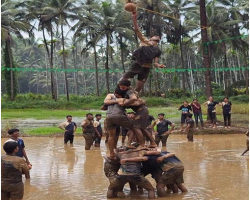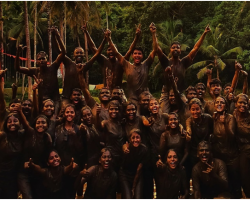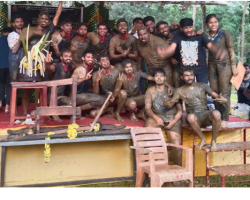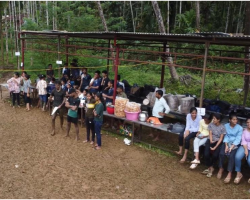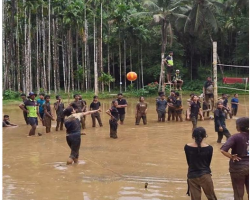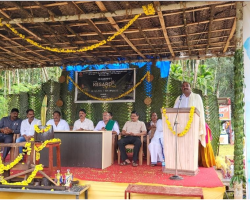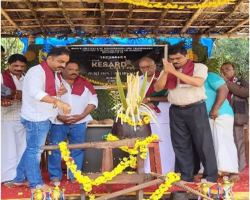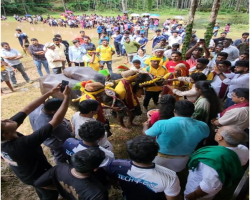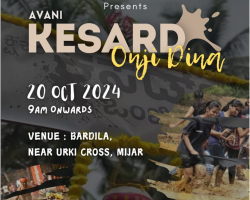AVANI – KESARD ONJI DINA ,
an event hosted by the Department of Information Science and Engineering in collaboration with the Techgeekz-Student Forum, focused on raising awareness about the impact of technology on agriculture. The theme was inspired by the pressing challenges faced by rural farmers, who struggle with climate unpredictability, crop selection, and technological inaccessibility. As students are increasingly encouraged to explore practical applications of technology, this event offered a platform to discuss and demonstrate how IT solutions could empower farmers and support sustainable farming practices. It was an educational and cultural initiative to bridge the gap between traditional agriculture and modern technology.
Agriculture remains the backbone of rural economies in India, with most of the farming population residing in rural areas with limited access to technology. This event was designed to foster understanding of these issues among students, providing them an opportunity to witness the realities of agricultural challenges. By creating an interactive space, the organizers aimed to build empathy for the farming community and inspire students to think of innovative, tech-based solutions that can improve crop production, reduce labor, and help predict climate patterns accurately. AVANI – KESARD ONJI DINA provided a platform where the student body could connect with the broader agricultural issues in the country.
This initiative also aligned with Alva’s Institute’s broader mission to support local communities. The event was not only about raising awareness but also about creating a sense of responsibility in students. The event’s structure and the support from distinguished guests and faculty underscored the Institute’s commitment to developing well-rounded graduates who understand their role in social and community development.
Procession
The main event began with a grand procession celebrating Tulu culture, which holds deep significance in the coastal regions of Karnataka. The procession was led by a pair of decorated kambala buffaloes, Appu and Pakku, symbolizing the agricultural heritage of the region. Students and faculty members followed in traditional Tulu attire, carrying flags, banners, and signs that illustrated the connection between farming and culture. This procession brought an authentic touch to the event, honoring the traditions that form the foundation of the community’s identity.
As the kambala buffaloes made their way through the procession path, students and guests observed the strong bond between the farming community and these animals, which have been central to agricultural practices for generations. The sight of Appu and Pakku, adorned and celebrated, was a powerful reminder of the resilience and importance of rural culture. The procession’s route was lined with attendees who watched in admiration, capturing photos and videos to commemorate the moment. This event underscored the value of integrating cultural elements into educational experiences, helping students connect with the values of the past as they move towards future solutions.
AVANI – KESARD ONJI DINA was more than just a celebration; it was an enriching experience that bridged cultural heritage and technological awareness. By engaging students in activities rooted in tradition, collaboration, and innovation, the event underscored the importance of community and the transformative potential of technology in agriculture. The day was filled with insightful discussions, spirited competitions, and meaningful interactions, all contributing to a deeper understanding of rural challenges and the role students can play in addressing them.
The success of AVANI – KESARD ONJI DINA was a testament to the hard work and dedication of the organizing committee, volunteers, and participants. It not only reinforced the institution’s commitment to holistic education but also inspired students to think beyond the classroom and consider the impact they can have on society. As the event concluded, participants left with lasting memories, new friendships, and a renewed sense of purpose, ready to embrace the future while staying connected to their roots.


